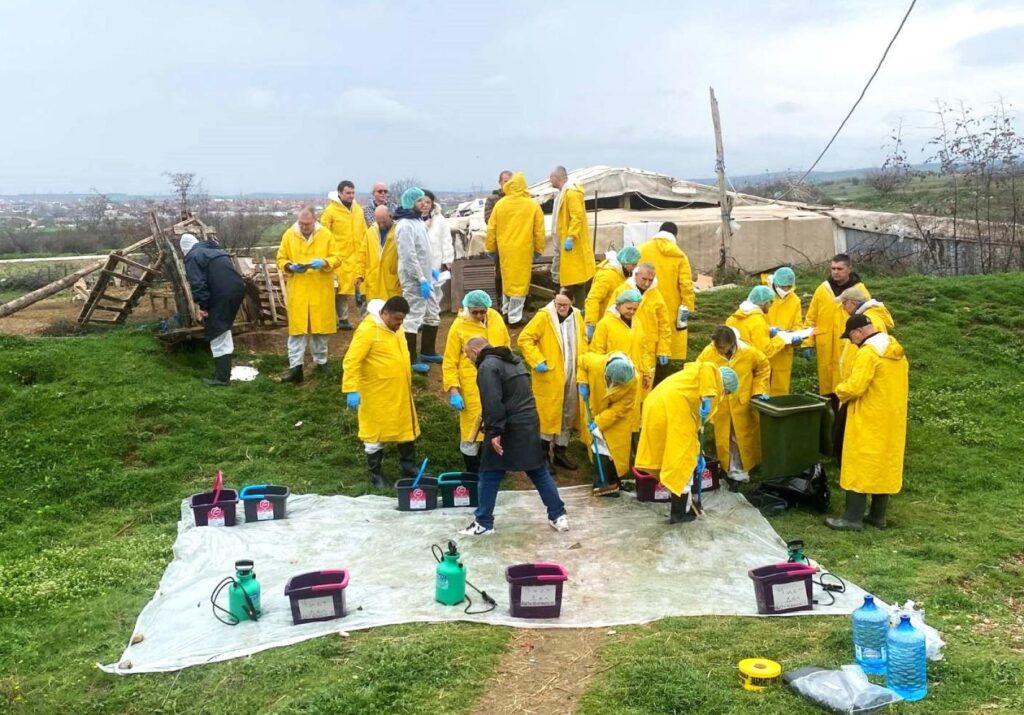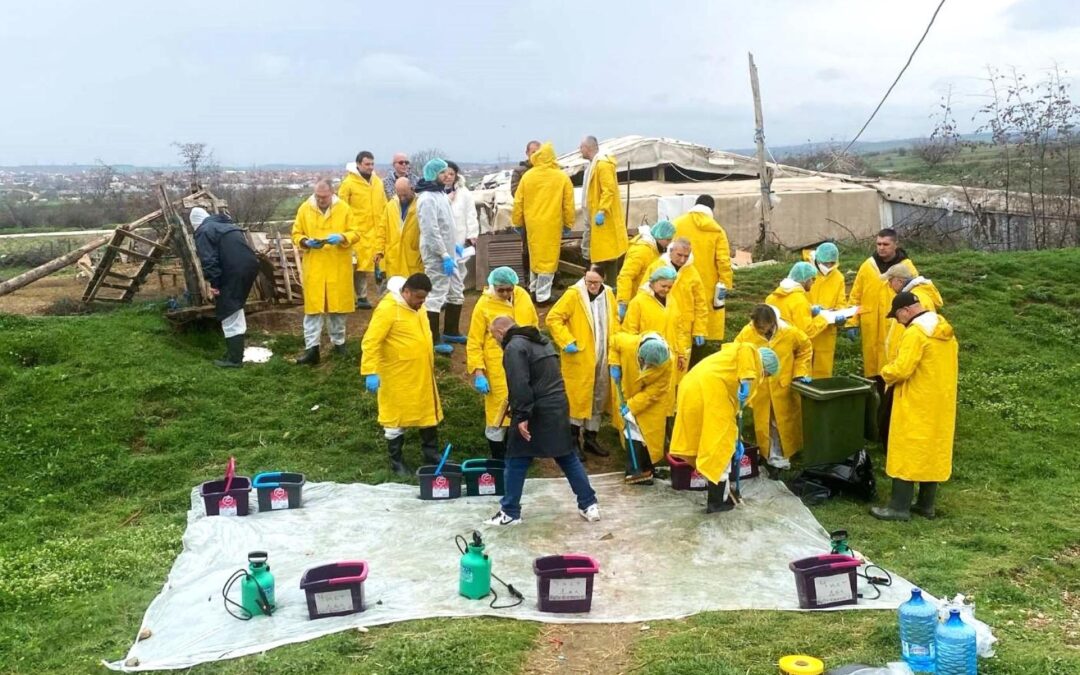North Macedonia has taken bold action to defend against a looming threat that could devastate its livestock sector and rural livelihoods — Peste des petits ruminants (PPR), a highly infectious and deadly animal plague targeting goats, sheep, camels, and wild ruminants.

This week, a large-scale simulation exercise concluded in the country, mobilizing top veterinary experts, government officials, and international partners in an intense, three-day operation. The exercise, led by the Food and Veterinary Agency (FVA) with support from the Food and Agriculture Organization of the United Nations (FAO) and the Bulgarian Food Safety Agency, tested the nation’s readiness to respond to an outbreak of this fast-spreading animal plague.
PPR is not just another livestock disease—it’s a killer. Infected animals suffer from raging fevers, depression, heavy discharges from the eyes and nose, agonizing mouth lesions, and severe pneumonia and diarrhea. Once the virus strikes, it can infect up to 100% of susceptible animals, with death rates soaring as high as 100% in the worst cases. The virus belongs to the same family as the infamous rinderpest, which was declared eradicated in 2011. But unlike rinderpest, PPR remains an active and dangerous threat — and the race to eradicate it continues.
Animal plague outbreaks in nearby countries such as Bulgaria, Greece, Romania, and Hungary have sent shockwaves through the veterinary community. The alarm bells are ringing loud and clear — and North Macedonia is responding.
At the opening of the simulation, FVA Director Oliver Milanov sounded a clear warning: “The disease has arrived in the region. We acted immediately, raising the alarm to ensure a strong, coordinated defense. This exercise is a vital weapon in our arsenal.”
Eran Raizman, FAO Senior Animal Production Health Officer, emphasized the economic and emotional toll of PPR: “This is one of the most economically devastating animal plague for smallholder farmers. Through this training, we’re equipping our frontline defenders with the tools to fight back—early warning systems, biosecurity, and rapid response. Defeating PPR demands a united front.”
Participants included key national and regional stakeholders — from the Ministry of Agriculture, the Veterinary Chamber, and the Faculty of Veterinary Medicine in Skopje, to EU experts and grassroots members of the “Modern Shepherd” Association.
Over three intense days, participants moved from theoretical to tactical:
- Day 1: Presentations laid bare the brutal clinical signs of PPR, methods of disease surveillance, and lessons from countries already scarred by this animal plague.
- Day 2: Teams went to the field, performing real-time outbreak simulations—clinical examinations, sampling, outbreak investigations, and even mock operations for culling and disinfection.
- Day 3: The operation concluded with a deep dive into preparedness strategies, psychological support for affected communities, and critical updates to the national contingency plan.
These simulations are more than academic exercises—they are war games. They expose weaknesses, sharpen skills, and prepare the country for the worst.
Earlier in March 2025, North Macedonia conducted a similar simulation on African swine fever, another deadly disease threatening pigs and wild boar. With the support of FAO and strong institutional cooperation, the country is stepping up to defend its agricultural backbone — and its people — from the devastating impact of trans boundary animal diseases.
Source: https://northmacedonia.un.org/en/291741-north-macedonia-prepares-against-peste-des-petits-ruminants

